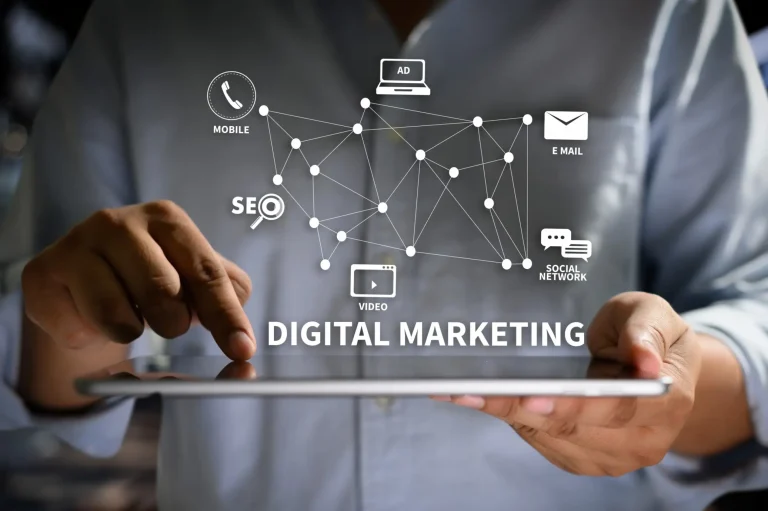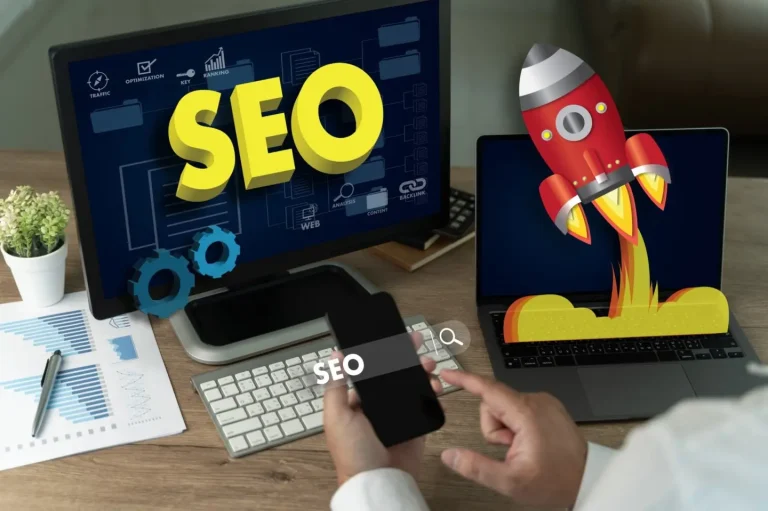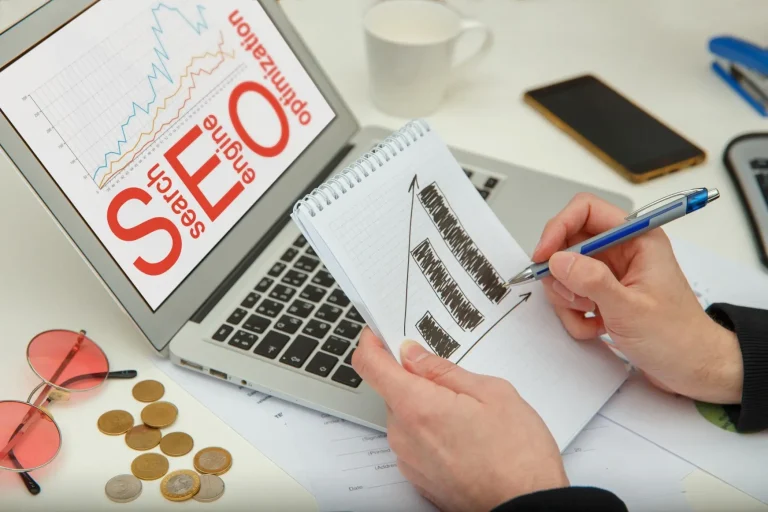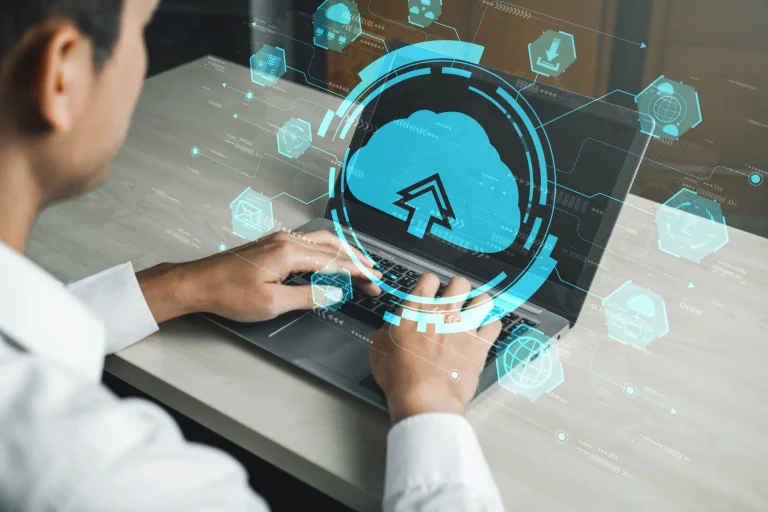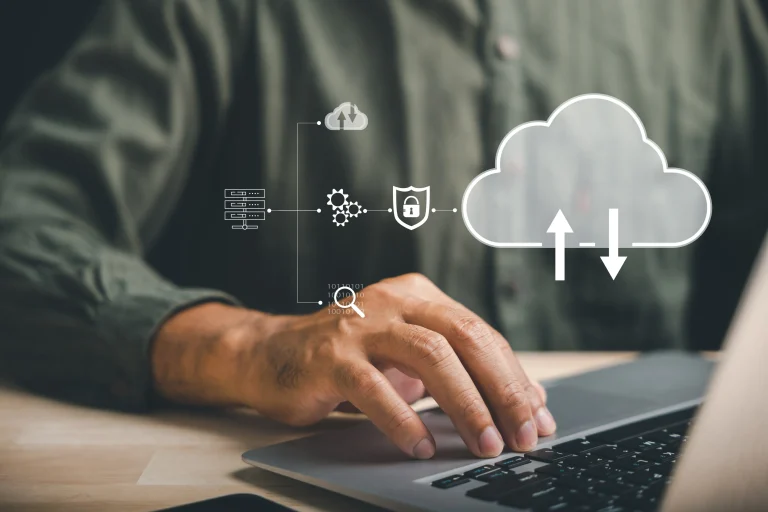The Future of Digital Marketing in an IoT-Connected World

Introduction:
The Internet of Things (IoT) is transforming how we connect, communicate, and consume information as a result of the rapid advancement of technology. An increasingly IoT-connected world is changing how marketers reach, engage, and convert consumers, which creates both special opportunities and difficulties for digital marketing. Digital marketing companies must adjust to new techniques of personalization, predictive analytics, and seamless customer experiences because of devices constantly transmitting real-time data.
The Role of IoT in Transforming Digital Marketing
The Internet of Things refers to a network of interconnected devices that share data to enhance user experiences, simplify tasks, and automate processes. From smartphones to wearable tech, home assistants to smart cars, these IoT devices capture a wealth of data, offering brands unparalleled insight into consumer behavior.
A digital marketing company can harness this data to create more personalized and contextually relevant marketing campaigns. In an IoT-connected world, customer touchpoints expand from traditional screens to any device linked to the internet. This means reaching customers at home, in their vehicles, or even through appliances, and using this connectivity to provide tailored, timely messages that engage users like never before.
How IoT Data Enhances SEO and PPC Strategies
One of the most valuable assets for digital marketing in the IoT era is data. IoT generates massive amounts of real-time data that digital marketers can leverage for smarter SEO and PPC campaigns, refining strategies based on precise consumer insights.
SEO in an IoT World
In an IoT-connected ecosystem, devices like smart speakers and voice-activated assistants influence how consumers search for information. With voice search on the rise, optimizing for natural language and conversational keywords is becoming increasingly crucial for SEO. For example:
- Long-tail keywords: Voice search often uses more detailed phrases than traditional typing, requiring content that addresses specific, natural language queries.
- Schema Markup: Structured data helps search engines understand the context of your content, which is essential for voice-enabled IoT devices.
- Local SEO: With voice search, queries like “near me” have surged, making local SEO an essential element in an IoT-focused SEO strategy.
PPC Campaigns with IoT Insights
IoT data allows for more precise targeting in PPC campaigns. Devices constantly collect data about user behavior, preferences, and location, offering new opportunities to create highly targeted ads. For example:
- Real-time ad delivery: Ads can be delivered based on a customer’s location or behavior, like serving a coffee shop ad as a user passes by.
- Behavioral targeting: IoT insights help identify patterns in user behavior, allowing brands to deliver ads to users based on past purchases or interests.
- Device-specific campaigns: With IoT, companies can tailor PPC campaigns to specific devices, whether it’s a smartwatch, smartphone, or tablet, ensuring ads resonate with the device’s typical use case.
The Evolution of Social Media Marketing in an IoT-Connected World
Social media marketing is one of the most dynamic aspects of digital marketing, and the IoT is set to amplify its potential. With IoT devices providing detailed insights into consumer behaviors, marketers can craft highly personalized, relevant social media campaigns.
Hyper-Personalization
With IoT data, social media marketing companies can deliver hyper-personalized content. Imagine a fitness brand using data from a user’s wearable fitness tracker to suggest workout routines, diet plans, or products directly on social media feeds. Personalization extends beyond broad demographic categories to the individual, creating meaningful engagements that resonate with each user’s lifestyle.
Real-Time Engagements
In an IoT-connected world, brands have the opportunity to engage with their audiences in real time. For instance, if a user is at a sports stadium, they could receive live updates or relevant promotions for merchandise on their mobile devices. This level of real-time engagement is invaluable for companies aiming to enhance customer experience and loyalty.
Data-Driven Insights for Social Media Strategy
IoT provides digital marketers with a continuous flow of data about user interests, location, and preferences, refining social media marketing strategies. Using this data, a social media marketing company can analyze trends and optimize content to better engage their audience, ensuring that posts reach the right users at the right times.
How IoT Impacts Content Marketing and Customer Experience
In an IoT-driven digital marketing landscape, content marketing is about delivering the right message at the right time and place. IoT enables companies to anticipate customer needs and interests with greater accuracy, producing content that is both relevant and compelling.
Contextual Content
Using IoT, content marketing becomes context-driven, meaning content can be delivered based on a user’s situation. For example, an IoT-connected refrigerator could notify users when they are low on groceries, prompting ads or recipe suggestions directly to their smartphones. Companies can create contextual content that aligns with the user’s current environment or needs, leading to higher engagement rates and better brand recall.
Improved Customer Journey
IoT data enables brands to personalize each stage of the customer journey. By understanding behaviors and preferences, digital marketing companies can help brands craft a seamless and intuitive journey from the first touchpoint to conversion. This allows for better audience segmentation, enabling marketers to nurture leads with relevant content that ultimately leads to sales.
Customer Support Automation
IoT can also improve post-purchase engagement. For instance, a connected product could automatically notify a support team if it experiences an issue, allowing customer support to proactively address the problem. This level of service builds trust and satisfaction, turning customers into loyal advocates for the brand.
The Future of Digital Marketing in an IoT-Connected Landscape
As IoT continues to evolve, so will the future of digital marketing. Here are some ways digital marketing companies can adapt and thrive in an IoT-connected world:
Predictive Analytics for Future Marketing Trends
IoT allows for real-time and predictive analytics, enabling companies to forecast trends based on historical and live data. A digital marketing company that leverages these analytics can create strategies that anticipate customer needs and optimize their campaigns accordingly. Predictive insights can drive timely campaigns, especially when paired with AI and machine learning algorithms.
Ethical Data Management and Privacy
With vast amounts of personal data being collected, the ethical use of this data will become a priority. Companies must respect consumer privacy and comply with regulations while harnessing IoT data. Brands that can demonstrate transparency and ethical handling of data will earn greater trust from consumers.
Cross-Device Marketing and Integration
IoT enables brands to reach consumers across multiple devices, from wearables to connected home appliances. This shift means that companies will need to create cohesive and consistent brand experiences across different touchpoints. Integrated cross-device marketing will become essential to keeping consumers engaged in a world where multiple screens and devices seamlessly blend together.
AI and Automation for Smarter Marketing
IoT and AI will work together to automate marketing processes, making campaigns more efficient and responsive. Automation enables brands to personalize content delivery and messaging in real time, maximizing engagement and ROI.
Creating a Seamless Customer Experience
The ultimate goal of an IoT-connected digital marketing strategy is to create a seamless, convenient customer experience. IoT allows brands to integrate into the everyday lives of consumers, making it easier to connect with the right audience at the right time. Companies that focus on delivering exceptional experiences will differentiate themselves in the IoT era.
Conclusion:
With IoT set to revolutionize customer experience, predictive analytics, and personalization, digital marketing has a bright future. Businesses need to get ready for a networked world where information is readily shared among devices, allowing for more focused and interesting advertising campaigns.
Success will depend on your ability to comprehend and adjust to these developments, whether you own an IoT development company or a digital marketing company. Digital marketers can develop deeper, data-driven relationships with consumers and produce engaging, worthwhile experiences that maintain businesses’ relevance in an increasingly interconnected world by staying on the forefront of IoT trends.
Table of content
- Introduction
- The Role of IoT in Transforming Digital Marketing
- How IoT Data Enhances SEO and PPC Strategies
- The Evolution of Social Media Marketing in an IoT-Connected World
- How IoT Impacts Content Marketing and Customer Experience
- The Future of Digital Marketing in an IoT-Connected Landscape
- Conclusion



